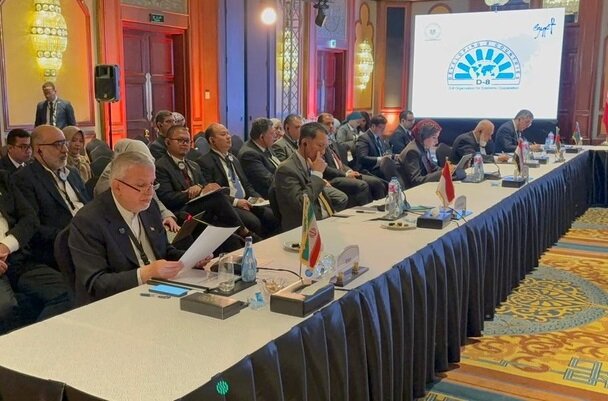Iran proposes strategic tourism roadmap at D-8 meeting in Cairo

TEHRAN – On Tuesday, Iran’s Minister of Cultural Heritage, Tourism, and Handicrafts, Seyyed Reza Salehi-Amiri, called for a transformative approach to tourism as a driver of sustainable peace and Islamic civilizational renewal during the 5th D-8 Senior Officials Meeting on Tourism, held Tuesday in Cairo.
Speaking before high-level representatives of D-8 member states, Salehi-Amiri presented a comprehensive strategic roadmap aimed at redefining tourism as a central pillar of civilizational diplomacy, sustainable development, and cultural capital generation.
He positioned Iran as a leader in smart governance, cultural diplomacy, and civilization-building investment within the Islamic world.
Highlighting shifting geopolitical dynamics and the emergence of innovative technologies such as artificial intelligence, the minister underscored the need for a new global order rooted in Islamic rationality, Eastern wisdom, and technological innovation.
“The future world is a battlefield of concepts, narratives, and civilizations,” he said, adding that nations that harness soft power tools like tourism will be better positioned to assert identity, enhance unity, and present an authentic image to the global community.
Elsewhere in his remarks, Salehi-Amiri outlined the Iranian government’s tourism policy, saying it has shifted from a traditional to a development-oriented, technology-driven, and economically strategic policy.
He then put the spotlight on Iran’s unique tangible and intangible heritage assets and emphasized the country’s progress toward becoming a regional hub for health tourism, historical route revival, smart infrastructure, and international investment. Key initiatives include establishing a Tourism Investment Center and launching the nation’s first artificial intelligence unit dedicated to the tourism sector.
Calling for ethical, just, and human-centered governance over emerging technologies like AI, Salehi-Amiri warned against sacrificing cultural identity, local authenticity, and equity in the name of development. “The digital divide must not lead to cultural marginalization or the erasure of decentralized heritage,” he said.
As part of his remarks, the Iranian minister introduced a strategic roadmap for enhancing intra-civilizational cooperation and promoting economic diplomacy among D-8 members. He called for the annual organization of a D-8 international tourism and investment expo, offering to host the first edition in Tehran in February 2026.
He also urged the reciprocal removal of visa requirements among member states to facilitate travel within the Islamic world and proposed the establishment of a joint tourism investment fund to finance large-scale regional projects.
Among other practical steps, Salehi-Amiri proposed creating a comprehensive investment opportunity database, launching multi-national tour packages to encourage longer visitor stays, establishing a regional tourism office, expanding direct and multi-destination flight routes among member states, and offering specialized training programs in digital marketing, destination management, and smart heritage conservation.
AM
